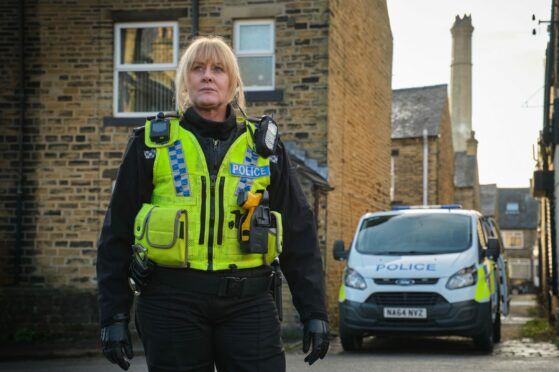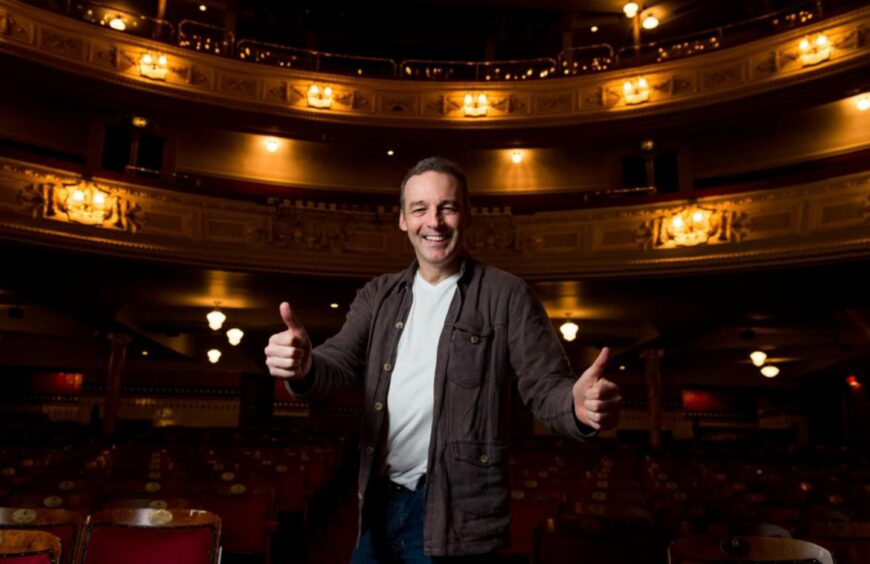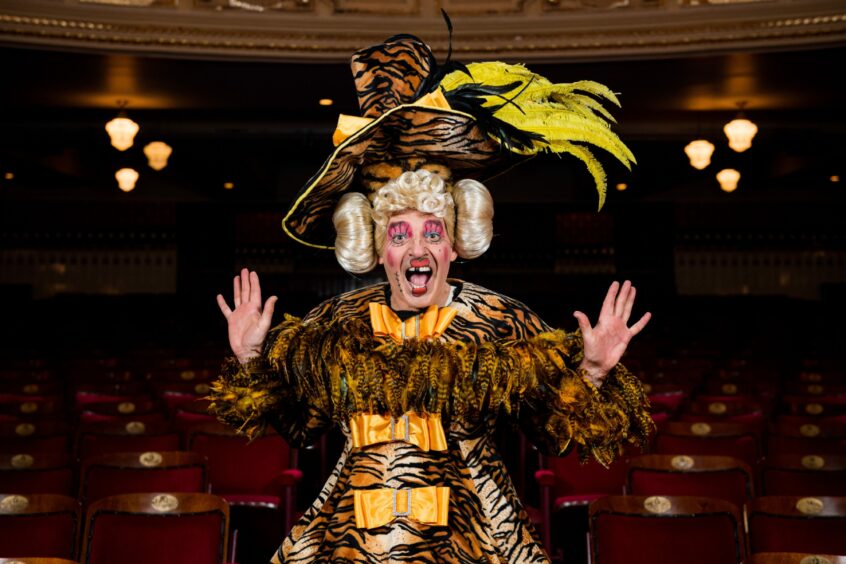So as to truly invoke this piece, I’ll get straight to the point.
It struck me as I sat engrossed in Happy Valley, there’s a reason we all love Sarah Lancashire’s character.
The formidable Catherine Cawood; it’s not just her determination to bring down Tommy Lee Royce, it’s her bluntness which delivers epic one liners.
Not everyone appreciates plain speaking, but what’s the difference between a direct approach and plain rude?
From who you’re with to even what part of the UK you’re in, I’ve discovered that going round the houses is a lot more complicated.
I’ve spoken with Doctor Amy Irwin from Aberdeen University, alongside the much- loved panto star, Alan McHugh, to find out more.
Alan McHugh: “I respect bluntness.”
Fresh from another successful run at His Majesty’s Theatre, Alan McHugh is of course our beloved panto dame.
He’s no stranger to bluntness when in character, but what happens once the curtain goes down?
“With strangers or people I don’t know very well, I tend to go round the houses,” he said.
“I have three categories; I’ll be blunt to their faces if it’s friends and family and I expect the same back.
“For people I don’t like, I won’t waste my time being diplomatic.
“But if it’s someone I don’t know at all, I’ll be diplomatic and build up the bluntness as I get to know them better.”
When it comes to fierce feedback within the theatre industry, Alan believes he has grown a thick skin.
No callback after five days means you haven’t got the role, but the public can be far more direct in their criticism.
“I’ll just be in Sainsbury’s and someone will come right up to me and say something like they’ve seen me in a show and they thought I was crap,” he said.
“Or they’ll say ‘my friend liked you, but I didn’t.’
“People don’t pussyfoot about, I laugh it off.
Alan cited some communities as an example, saying: “I’m talking Manchester, Glasgow, Liverpool, Newcastle for example.
“These are old working class communities, the old shipyard mentality of Glasgow or the mining areas.
“People don’t have time to faff about, they’ll say it to your face without blinking.
“It’s a bluntness which I enjoy and respect, you won’t find it in say, Brighton.
“I love it when people are so in my face, I respect the complete honesty because there are no grey areas.
“You walk away knowing where you stand.”
When it comes to playing the dame, there’s a certain level of bluntness which Alan believes he can get away with.
“The interesting thing about panto; my character is normally rude and in your face to the baddy,” he said.
“In Scotland, everyone thinks the baddy is English.
I actually think it’s about upper and lower working class.
The working class undermines the authority of the upper class and the best way to do it, be blunt.”
Doctor Amy Irwin: “It’s endlessly fascinating and complex.”
Dr Amy Irwin is a senior lecturer in psychology at Aberdeen University, and has previously produced a paper titled “That’s just rude: why being polite may not be a universal concept.”
Her research saw her explore language and cultural identity, with the example of a French waiter contesting his dismissal from a Canadian restaurant.
He argued his behaviour was due to his French manner.
In a not so dissimilar case, Bond girl Eva Green is currently in the headlines for suing a production company.
And with abusive messages she sent to film bosses now exposed, she has argued the language used is merely her “Frenchness coming out.”
“Straight talking can be considered a good thing, dependent on region,” said Dr Iriwn.
“In Yorkshire for example, people can pride themselves on being a straight talker.
“There’s also gender differences, where men will be praised for being firm.
“A woman can engage in exactly the same behaviour and be seen as outspoken or hysterical.”
Dr Irwin believes perception of bluntness can also depend on your own concept of politeness, and how much information you have about the person.
“A lot of how we perceive behaviour is how we perceive the intention,” she said.
“So if we think it’s their accent or their culture, but if we think someone is being rude on purpose, we will react differently.
“I think it can be seen as a positive change in our culture, the idea you should moderate what you say and how you act in order to take care of others.
“It’s considered important to be honest.
“But the way you couch your phrasing, even the tone of your voice, is the difference between honest versus blunt.”
Are we too civilised to be blunt?
There’s a lot of debate about bluntness versus being inconsiderate.
According to research, bluntness can mean you’re abrupt, but not at the expense of someone else’s feelings.
Outside of the UK, and both Germany and France are known for a more direct way of speaking.
Your own experiences will then impact whether you view this take as unfriendly or purely a cultural difference.
Aside from the content of what you’re actually saying, it can also be how you say it which makes a huge difference in how it comes across.
If you’re know for being blunt within your friendship group, you can often be the person who people seek out for advice due to your plain talking.






